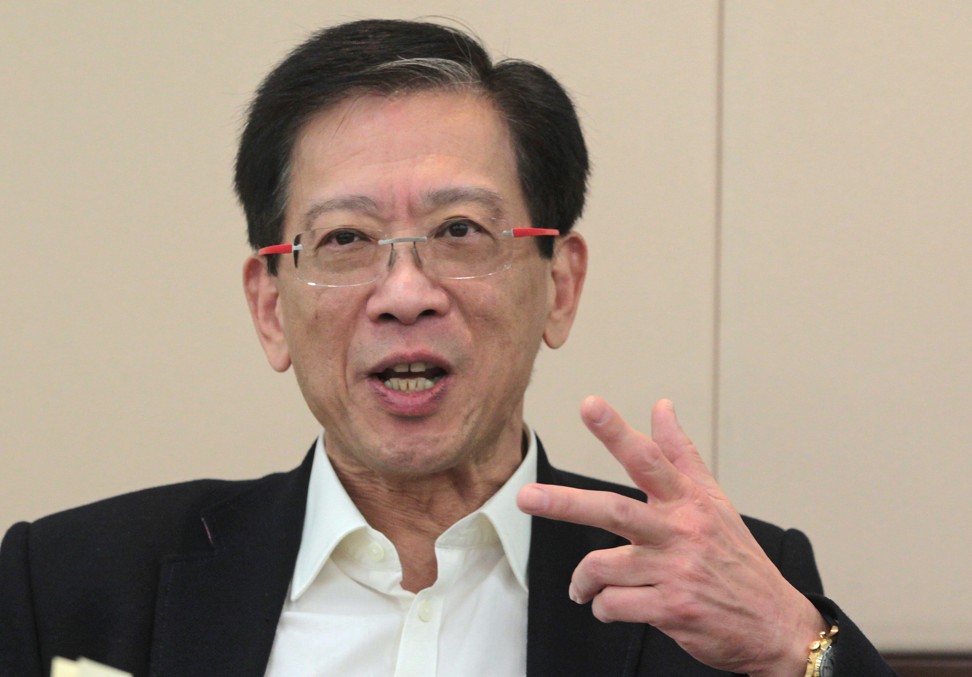
All Hong Kong underground spaces ‘belong to China’, Basic Law expert says amid rail row over terminus checkpoint
Alan Hoo says spaces beneath ground level in Hong Kong are locally managed only because of ‘consent’ from the central government
A member of Beijing’s top advisory body has said that Chinese officers have a right to enforce mainland laws beneath ground level in the Hong Kong terminus of a new cross-border rail, because the “underground jurisdiction belongs to China”.
Alan Hoo’s theory was quickly dismissed by local lawyers as “absurd” and legally erroneous, but his ideas were seen as similar to the view held by some mainland officials eager for a tough approach to the railway’s law enforcement model, which will be unveiled shortly.
Hong Kong and mainland authorities have been trying to reach a consensus on how to let passengers of the Guangzhou-Shenzhen-Hong Kong high-speed railway cross the border conveniently through a joint checkpoint at the West Kowloon terminus, without compromising the “one country, two systems” principle. The rail will begin operations late next year.

The local government said it hoped to announce a decision on the issue before the current administration’s term ends in June.
Proponents of the joint checkpoint said having counters on each side of the border instead would lengthen travel times.
But pan-democrats and lawyers argued that the co-location of checkpoints is not feasible because the mainland has no right to enforce any laws in Hong Kong under the Basic Law.
Hoo said on Friday that their arguments did not stand because the checkpoint would be sited underground. “Hong Kong should not assume that it owns all space that is dug underground,” the Senior Counsel and a deputy to the Chinese People’s Political Consultative Conference said on a radio show.
“The [underground] jurisdiction belongs to China. Hong Kong is only authorised to manage the space,” he added.
Citing the 1997 decree of China’s State Council which stipulated Hong Kong’s border details, Hoo argued that the city’s autonomy only covered all land and sea “surfaces”. But a check conducted by the Post showed that the document stated land and sea “sections”.
As for existing underground spaces such as shopping malls and other train stations, Hoo explained there was “implied consent” from the Chinese government in allowing Hong Kong’s control over the areas.
Johannes Chan Man-mun SC, a constitutional law professor at the University of Hong Kong, dismissed Hoo’s argument as “absurd”.
“The land law in common law says you own everything above and below the land,” Chan said. “If Mr Hoo’s logic is right, mainland police will be able to arrest people in all underground MTR stations in Hong Kong.”
Barrister Ronny Tong Ka-wah SC also said he was “shocked” by Hoo’s comments, which “did not fit the general legal principles”.
“Beijing has a right to exercise its sovereignty and issue another decree to redraw Hong Kong’s border – but it will have to think of the political consequences,” Tong said.
This would further fuel fears about erosion of the city’s autonomy, he warned, adding that Hoo was not alone in his views, and other mainland officials also shared similar sentiments.


